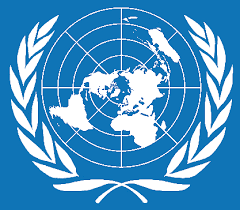Press Release, Thursday, 27th July 2017 
Human Rights expert committee “troubled” by Ireland’s failure to reform the abortion law
The United Nations (UN) Committee Against Torture has today (27.07.17) questioned Ireland about the lack of progress in reforming Ireland’s abortion laws. Committee member and rapporteur for Ireland, Felice Gaer, has said she is troubled by Ireland’s failure to reform the abortion laws, and that four UN Treaty Monitoring Bodies have expressed concern at the incompatibility of Ireland's abortion laws with international human rights obligations since 2013.
The ten-member Committee is reviewing Ireland’s implementation of the Convention on Torture and Other Cruel, Inhuman or Degrading Treatment or Punishment. A second Committee member, Claude Heller Roussant highlighted the need for the Government to raise public awareness of Ireland’s human rights obligations in relation to abortion reform.
IFPA CEO, Niall Behan, said: “The Committee’s members are leading human rights experts. They are clearly shocked and deeply troubled by the lack of conformity of Ireland’s abortion laws with international human rights standards.”
Mr Behan continued: “That Ireland’s abortion laws have come to the attention of the UN Torture Committee should be a wake-up call to the State. This Committee cannot be ignored: Ireland must end reproductive coercion and fulfil its obligations under international human rights law by introducing abortion services that respect women’s human rights, health and autonomy.”
Notes:
- The Committee Against Torture (CAT) is a body of 10 independent experts that monitors implementation of the United Nations Convention against Torture and Other Cruel, Inhuman or Degrading Treatment or Punishment (commonly known as the United Nations Convention against Torture).Signatories to the Convention submit regular reports to the Committee on how the rights are being implemented. The Committee examines each report and addresses its concerns and recommendations to the State party in the form of "concluding observations". Ireland was last examined in 2011.

